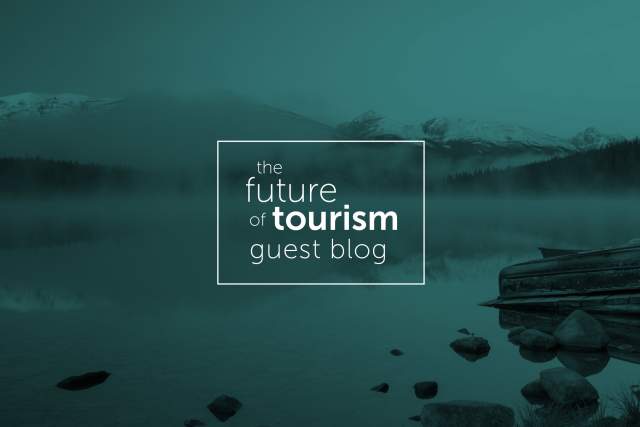Future of Tourism Series | Guest Blog
By James Jackson
It was sometime after when I usually would be in bed, but the government’s latest COVID-19 restrictions weren’t going to interpret themselves. I wasn’t lonely, though, as I knew this practice was familiar for so many destination organization leaders all over the world. It was a curiously predictable cycle: cases would rise or fall, governments would painstakingly react with well-thought-out, mostly reasonable, data-driven regulations to combat the circumstances. Then we would all scratch our heads to figure out how to colour within the lines.
My favourite regulations to interpret are about events – and why they’re bad. Many thousands of people congregated in a particular place at a specific time. It sounds like a bad dream now, but once upon a time, that was precisely why I got into this business – the energy, the excitement, the high ADR.

As tough as it is for them to write the textbook while trying to read it, our public officials and chief medical officers are only one step ahead of us because there is no playbook for COVID-19. So, as I sipped coffee and scratched my disappearing hair, it dawned on me that this whole excruciating year has been one big ineffective communication exercise. Maybe we, as destination leaders, could, in some small way, help those who have given so much; after all, we do have some experience with communication.
Regardless of where you find yourself reading this, I’m sure the regulations in your jurisdiction say something along the lines of events are terrible superspreaders, and you shouldn’t produce them. While I wholeheartedly agree that “events,” as we used to produce them, are bad for COVID-19 transmission, what if we had a communications answer to the ever-changing COVID-19 regulatory question?
What if we changed the narrative and started operating in reality while colouring within regulatory lines? What if we did ourselves a favour and described “events/festivals/meetings” as “programs” and put effective communication at the front of our COVID-19 recovery strategy?
I’m always harping on our team about value creation, community shared benefit and return on investment. So, it was fitting that this new, not-so-novel idea could deliver on all three. Not only for our industry stakeholders but for our public servants and regulators who have worked so hard to try to keep businesses open but could never in good conscience say yes to an “event.”
The next morning, after yet another sleepless night, I drafted a briefing note for my board that outlined our new Jasper Dark Sky Festival Program. It looked a lot like many of the programs many of you have effectively executed; contactless, physically-spaced, self-guided experiences built around whatever your destination’s unique selling proposition is – and completely COVID safe.
Our team pulled it off with zero infections, long story short, then did it again a few months later for another program. So, if nothing else, as you draft your next permitting application, board agenda or budget submission, call your event a program, and save yourself some sleep.


James Jackson
President & CEO Tourism Jasper, Alberta, Canada
James Jackson is the President and CEO of Tourism Jasper, the destination marketing organization for Jasper and Jasper National Park, the largest National Park in the Canadian Rockies, which welcomes over 2.5 million visitors every year.
Before joining Tourism Jasper, James was in the event business, working on events like the Women’s World Cup Canada, ITU Grande Finale, and Red Bull Crashed Ice. He later moved into the destination development space, facilitating multiple tourism-based real estate development projects. James enjoys speaking to post-secondary students about the tourism sector as a rewarding and fulfilling career path.
